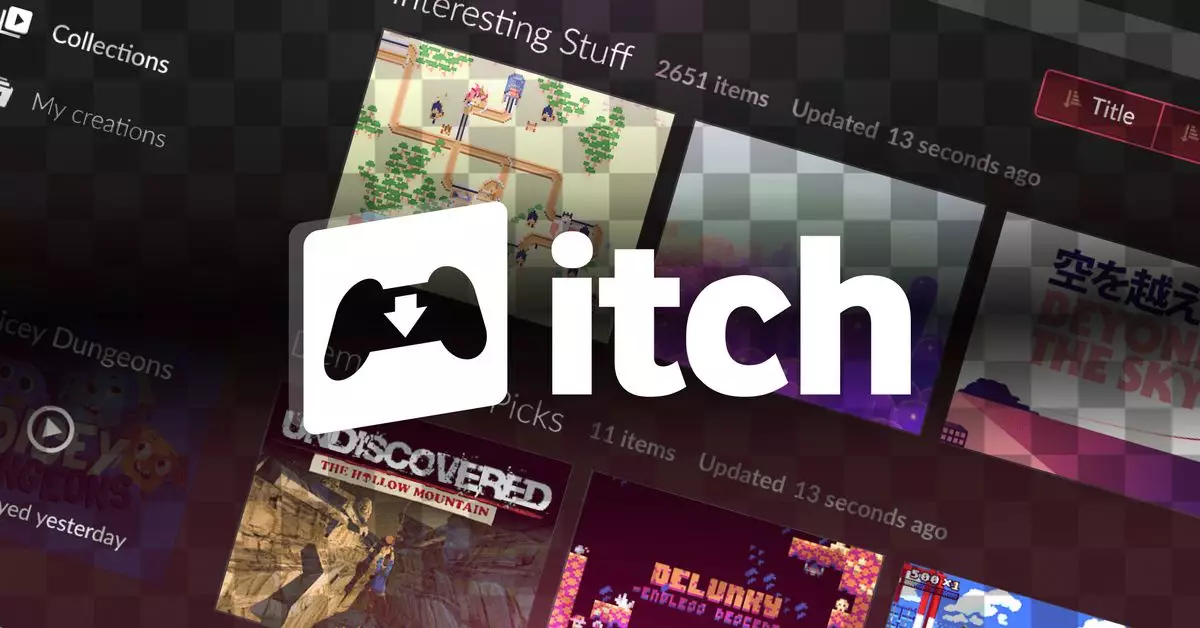In a modern twist that highlights the vulnerabilities of digital platforms, indie game marketplace Itch.io has recently found itself navigating a storm of turmoil instigated by a seemingly baseless phishing report. Although Itch.io’s servers are functioning, the domain’s redirection to unfamiliar IP addresses has rendered the platform inaccessible for countless users. This precarious situation underscores the fragility of online businesses that rely heavily on uninterrupted access to their digital domains.
At the heart of this disruption lies a dispute with Funko, a popular pop culture collectibles company. Itch.io has pointed fingers at Funko for utilizing an ineffective “AI-powered” Brand Protection Software, known as Brand Shield. The platform publicly criticized this software for generating a fraudulent phishing report, prompting the domain registrar, iwantmyname, to disable Itch.io’s domain. This raises unsettling concerns about the reliability of automated systems in accurately monitoring and responding to digital threats. When these tools fail, it is typically smaller entities that bear the brunt of such misjudgments.
While the original phishing claim was addressed and the associated page removed, the lingering effects are manifesting as users face hurdles accessing their accounts. Fortunately, tech-savvy users have a potential workaround; by modifying their hosts file, they can temporarily connect through the specific IP address of 45.33.107.166. However, this solution is not foolproof and necessitates awareness of how to reverse the changes once the domain is reinstated. This signifies not only the technical challenges posed by the crisis but also the need for user education in navigating such issues sourced from external mistakes.
As Itch.io anxiously awaits the resolution from its domain registrar, the community is left in limbo. The indie platform recently introduced a feature allowing users to utilize their Itch.io profiles for Bluesky accounts, making the current disruptions especially impactful. Those who opted for personalized URLs have found themselves encountering “invalid handle” errors, further complicating user experience during this tumultuous period. The key question looms: How will Itch.io rebuild trust within its community while grappling with the consequences of unforeseen complications?
This incident serves as a stark reminder of the precariousness inherent in the digital landscape. The fact that a trusted platform like Itch.io can be jeopardized by a third-party software’s error illustrates the broader systemic vulnerabilities faced by many online services today. As the dust settles from this crisis, Itch.io’s response and recovery will be closely watched, not only for their impact on its own users but also for the insights they may provide to other indie platforms navigating the uncertainties of digital commerce.


Leave a Reply